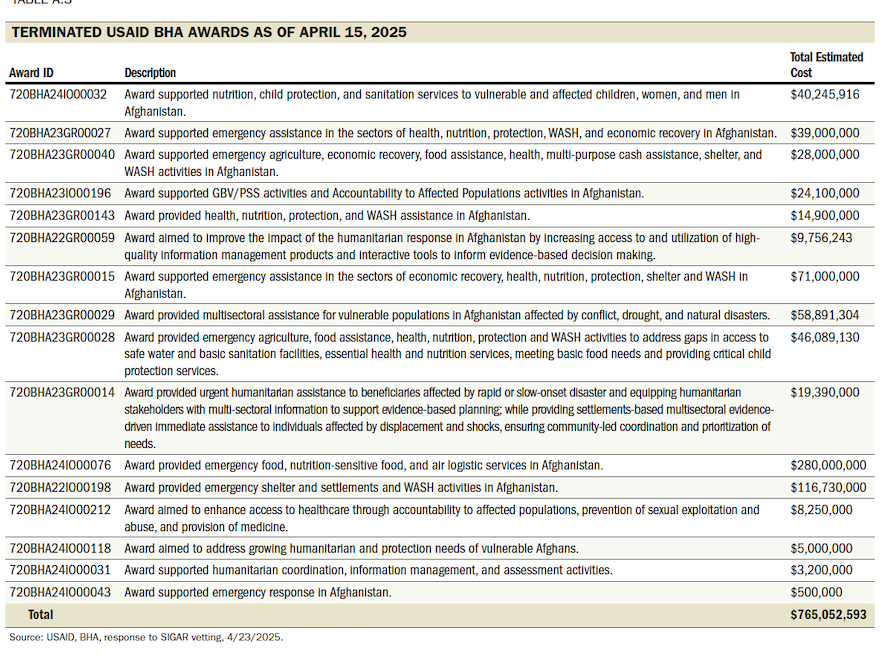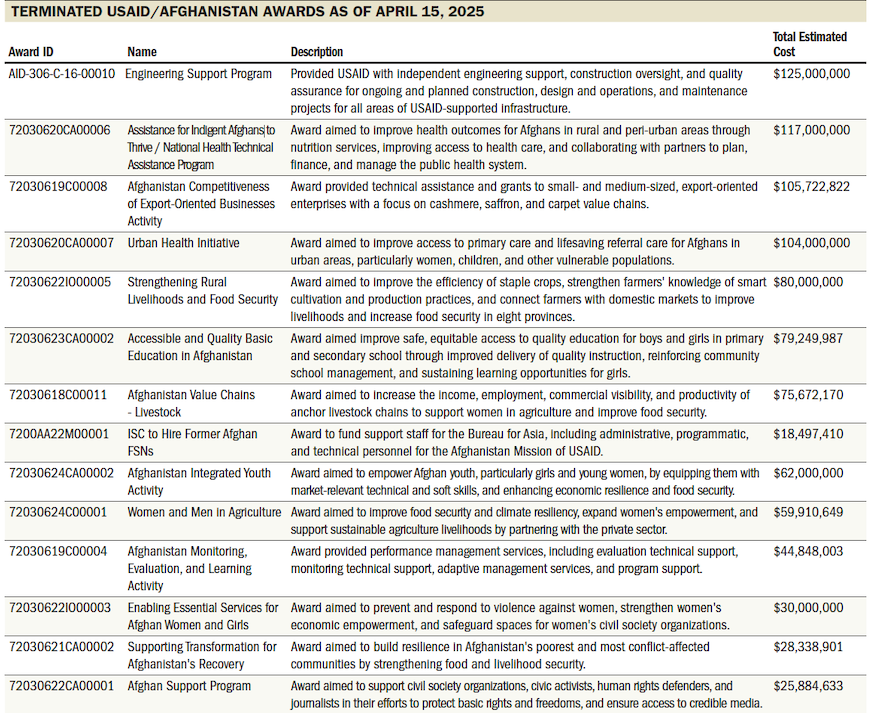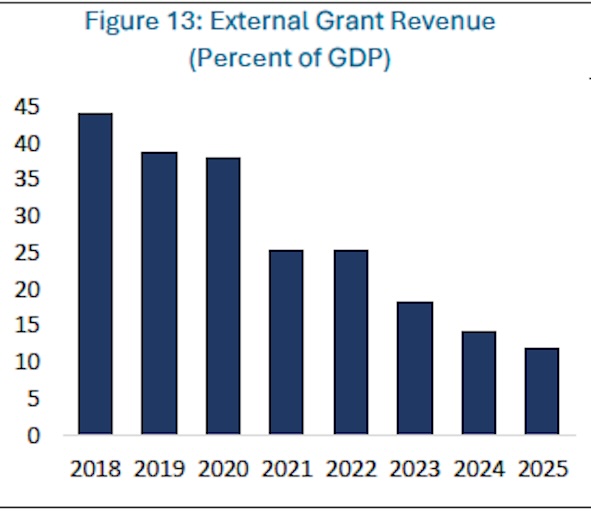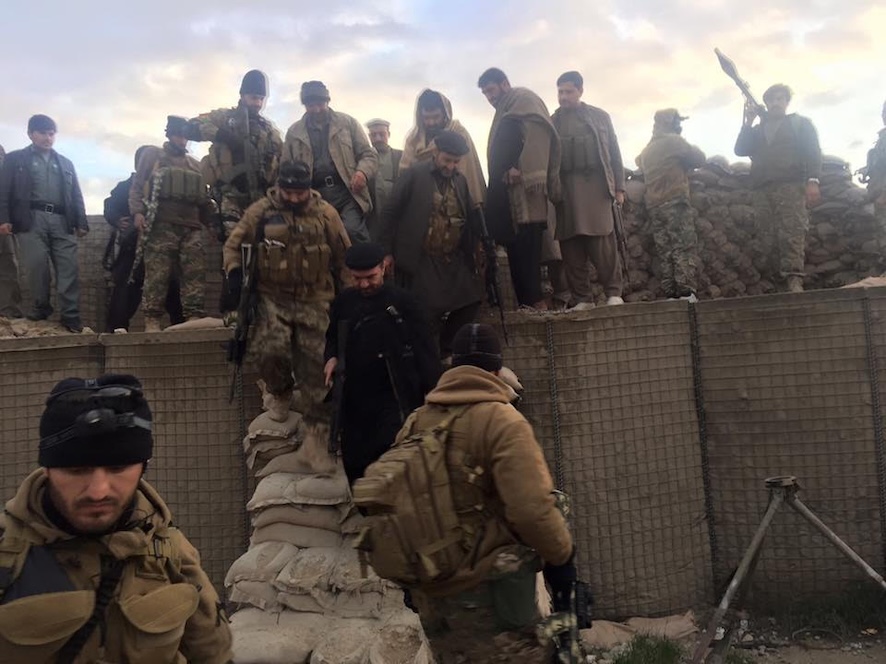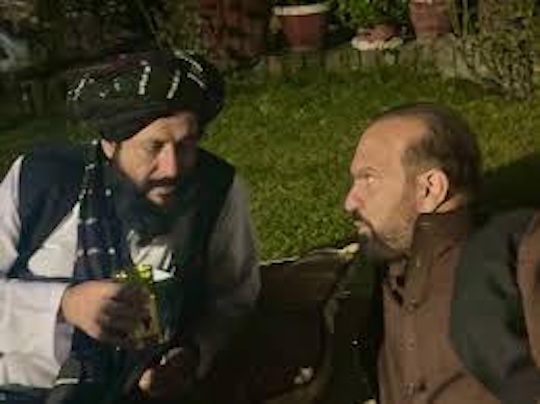Afghanistan Analysts Network
A second part of this research will look at how mullahs’ theological education has changed and how this has affected how they are viewed by wider society.
The term ‘mullah’ is widely used in Afghanistan, Pakistan and Iran to refer to religious leaders or prayer leaders within Muslim communities. A mullah is typically someone with a basic knowledge of Islamic teachings who is capable of leading prayers, teaching the fundamentals of religion and addressing common religious issues faced by his congregation. Some interviewees also spoke about ulema (singular – alem), usually understood as Islamic scholars, although they were still referring to clerics with the sort of basic training enjoyed by Afghan mullahs through the ages.
This report examines the personal lives of village mullahs, focusing on the changes in their economic status over time and the factors driving these shifts. It also explores the implications of an improved economic situation for mullahs. This study specifically focuses on the southern and southeastern regions of the country,[1] mainly rural and Pashtun, and with all interviewees being Sunni Muslim. The author notes that the lives of mullahs and their social status could be somewhat different in Afghanistan’s various regions, and that urban mullahs have almost always had a different trajectory, with far more control exercised by the state, including often being paid directly by it. The findings are based on more than 10 in-depth interviews with mullahs from Khost, Paktia, and Ghazni, as well as insights gained from conversations with community leaders and mullahs from other provinces in the south and southeast.
Background
Mullahs play an important role in their communities across southern and southeastern Afghanistan, even though their level of religious education is often limited. Most do not possess advanced or specialised knowledge of Islamic theology, nor do they typically hold degrees from formal religious seminaries or universities. Instead, their education has often been acquired through informal study or apprenticeship within local mosques or madrasas. Despite this, mullahs are often seen as trusted figures of authority and guidance in everyday religious matters. Their personal lives and economic status have traditionally been modest and they usually do not hold a privileged position. Mullahs have typically not engaged in other occupations, with religious guidance being their only profession, and have often been seen as separate from the general population, with little involvement in the social, tribal, or customary dynamics that shape people’s daily lives.
These local religious leaders have, however, occasionally played a powerful social and even political role in Afghan history, particularly in times of crisis or when religion was perceived to be endangered.[2] During such periods – whether it was for rallying people against the state or for organising resistance against foreign invaders — both local communities and the Afghan state, as well as its opponents, have regularly turned to mullahs to unite the population behind a common and higher cause. For instance, during the Anglo-Afghan wars, Afghan statesmen frequently relied on mullahs to legitimise their call to arms and rally support from local communities. By contrast, during the reign of Amanullah Khan in the 1920s, it was again the mullahs who, this time, catalysed the fight against his government, ultimately leading to the king’s downfall.[3] Their influence at times of crisis also stemmed from their perceived impartiality within a community: as mullahs were often originally outsiders in the communities they served, they were considered free from factional interests and uninvolved in familial or inter-tribal rivalries.
In normal times, however, outside their religious duties, mullahs were typically not given much importance by the community and their influence was largely limited to religious affairs. Due to their minimal involvement in practical or economic matters, mullahs were often the poorest segment of society, relying entirely on the community for their livelihood in exchange for providing religious and spiritual guidance. This dependence on other members of the community for their livelihood traditionally relegated mullahs to a separate and somewhat inferior status in the tribal society of southeastern Afghanistan. A well-known story from Pashtun rural areas, shared by one interviewee, clearly illustrates the modest economic status of mullahs, as well as their reputation for greediness often given by other villagers.
There’s an old saying drawn from a well-known story about a mullah who got stuck in a small river. A villager saw him struggling and came to help. He told the mullah to give him his hand so he could pull him out, but the mullah refused. The villager tried again and again, but the mullah still wouldn’t extend his hand. Finally, the villager told the mullah to take his hand, and the mullah quickly did so and was pulled out. This story has since become a proverb: ‘A mullah never gives something to someone; he is only ever a taker.’
This perception of mullahs was so deeply ingrained that one interviewee recalled, “On the first day of the [Taliban] victory, people in our area said that now the mullahs are in power, they “wouldn’t be paying the salaries of government employees because they are only takers, not givers.”
The reality of living in poverty was described by many of the mullahs interviewed for this research, for example, this interviewee from Khost’s Sabari district:
My father was the oldest brother [of the family]; the other two were younger than him. He studied religion and became a mullah, while his other brothers worked as mechanics. My father inherited some land from my grandfather. When the brothers distributed the land, he sold his share for very little money and we became homeless. My two uncles, who were earning money as mechanics, built themselves homes and started farming. My walid sahib [father], however, chose to become an imam [congregational prayer leader]. At that time, we only owned a cow and a bicycle. We had no home, no land, nothing else.
Another interviewee, a 45-old mullah from Paktia province, recalled:
We didn’t have our own house and would move from one village to another. My father only had two [sets of] clothes and we mostly ate buttermilk. He would spend one year in a village in return for zakat [the Islamic tax on the harvest] and sarsaya [a poll tax on individuals]. The villagers would also give him a house so that he could live in the village and get to prayers and other ceremonies on time. The house that was given to us was in the worst of conditions. It had only two rooms. The roof had cracks and the garden had no water source [to irrigate it]. I remember we didn’t know what money looked like because we didn’t have any. The zakat we received wasn’t in cash but in kind – wheat, beans, potatoes and other things. Sarsaya was also given as wheat. The villagers themselves didn’t have much money.
A third interviewee, 50, from Gurbaz district of Khost, also recollects:
My father was a mullah. He had an imamat [position of imam] in many villages in Gurbaz district. Villagers were poor, but not as poor as the mullahs. They’d go to Lahore [Pakistan], India, or Arab countries to work as labourers and bring some money back, or they had land and they’d sell their crops. But the mullah had no land and no other work. His job was full-time and only limited to his imamat. In fact, mullahs didn’t have any other skills. Because of this, my father was dependent on the villagers all his life.
The life of the rural mullah had other complexities as well. Among them, mullahs needed to move from one village to another, leaving behind their birthplace and relatives, as one interviewee explained:
In the past, there were very few mullahs and people needed to find one from far away. Because people’s economic [situation] wasn’t good and transportation was poor, the mullah would usually move to their village. Villagers would give him a home, but it was often in such a bad condition that the villagers themselves wouldn’t live in it.
Another interviewee, in his late 40s, from Paktia, said:
Life was very hard because, after some time, the villagers would change their mullah. When they asked my father to leave his imamat, he would get another imamat in a different village, sometimes, in a different district. So, we’d move there [to the new village]. There, too, the house we lived in was no better than the one we had previously lived in.
The fact that mullahs in rural areas relied on the communities among whom they resided, rather than being on the government payroll, often helped them maintain a significant degree of autonomy from the state and build closer ties to their fellow villagers. That meant, in the decades before the start of the Afghan conflicts from the late 1970s onwards, mullahs engaged only in their religious duties and escaped government control. That eventually won them appreciation in areas where state attempts at increased penetration were seen with suspicion. Some mullahs would later be able to capitalise on the trust and influence they enjoyed within their communities and take up roles of authority during the anti-Soviet jihad.
Why have mullahs formed the poorest segment of society?
The mullahs’ low economic and social status had several structural causes. First and foremost, it was rooted in the overall economic decline that Afghan rural society had experienced during the mid-20th century. Mullahs did not engage in alternative economic activities and even when they tilled the land, they seldom owned sufficient amounts to survive. They also had no part in the management of or benefits from collectively-owned tribal land. Mainly, their livelihoods were rooted in support from the community. They were, therefore, directly and deeply affected by the overall economic conditions of local people, which, by and large, were still based on subsistence farming and barter. One interviewee, a community elder in his late 50s, from Ghazni province, described the situation:
When people don’t have much themselves, how much will they give to you? People didn’t have cash; they didn’t have extra houses or a lot of money that they could give to the mullahs. Society overall was poor and, imagine: How would it have been to serve as the mullah in such a poor society? The simple answer is that you would have been the poorest person. Since most people relied on farming for their livelihood and cash was unavailable, they could only provide for the mullah out of what they got from the harvest.
Another interviewee, a 45-old mullah from Paktia, said:
The villagers paid the mullah from what they grew. They’d also only provide for basic needs like fodder and firewood for winter. My father always says he doesn’t remember getting a penny from the villagers. Those mullahs that had the imamat of major villages would get more from the harvest and then exchange some of it for other essential goods.
Another reason for the mullahs’ poverty was the way the profession was passed down within families. Being a mullah was often a family tradition, with several generations of men in the same family becoming religious leaders. They would typically train their children in religious studies, either by sending them to madrasas or hujras (small, informal religious seminaries) or teaching them themselves. They rarely encouraged them to pursue other careers. One interviewee said, “My father was a mullah because my grandfather was also a mullah. Likewise, I’m a mullah because my father was a mullah. One of my sons is also a mullah.”
In traditional Afghan society, however, this pattern was not limited to mullahs alone; other professions also followed such a trajectory. The pattern typically began with one person in some exceptional case and continued through generations. One interviewee, a tribal elder, explained that in non-mullah families, parents would often send a son – usually the one who could not pursue other work – to a madrasa. Or, they might send him there in fulfilment of a nadhr (a pledge to do something good or dedicate something to God in exchange for a specific favour or blessing). In one particular case, shared by a tribal elder with the author, a man who did not have sons made a vow: if God granted him four sons, one of them would become a mullah. Once a man became a mullah, his sons would often follow the same path, and becoming a mullah then became the family’s profession for generations.
The ‘80s and ‘90s: Conflict and exile brings change
As Afghanistan became entangled in major global conflicts, particularly during the Cold War and later the War on Terror, the lives of its people and their social structures were deeply affected. The shift began with the Soviet invasion of December 1979, followed by Afghan resistance and the start of a prolonged war. This conflict led to the deaths, injuries and disappearances of hundreds of thousands of Afghans, while millions were forced to flee their homes and become refugees. Many of the mullahs interviewed identified this period of displacement as the point when their lives began to change. An official of the previous government who was also a mullah once told the author:
When we became refugees, all the people lost the status they’d had. The khan [tribal elder or richest man in a village] and the malik [the state-appointed head of a village] lost their influence, the mullah lost his influence, the rich became poor and the poor got new opportunities. Things turned upside down. What people had been doing [in their home communities] was no longer sufficient for survival. New horizons were opened to people. They saw a new world and everyone faced the quest for living among these challenges.”
Becoming a refugee meant losing one’s social standing, the traditional norms and often the community once belonged to. Along with the loss of social status, refugees also faced significant economic difficulties in the new country. For mullahs, whose role had been tied to religious and community leadership, survival was a particular struggle. Lacking other professional skills, many had to learn new ways of earning a living. This forced shift in livelihood also led them to rethink their place in the world and their understanding of survival outside their traditional role. With the collapse of Afghan social structures in exile, mullahs found it increasingly difficult to survive solely on their erstwhile status of religious leader, especially given their limited formal religious education. One interviewee from Paktia recalled, “When we went to Peshawar [as refugees], many of our comrades [fellow mullahs] joined the ranks of the jihad and many others started studying in madrasas, moving back and forth between madrasa and battlefield.” Others sought alternative employment or business opportunities, with some even migrating to Gulf countries. Migration to the Gulf was to become a growing trend among men originally from Loya Paktia in general (it was mentioned with increasing frequency by interviewees as happening in the post-2001 period).[4]
What is critical here is that mullahs played a significant role in the war against the Soviets, gaining prominence in the ranks of several mujahedin factions. In the context of jihad, the emphasis on religious duties and religious education increased among Afghan rural society in general and some mullahs found themselves well-positioned to play leadership roles. This was due to their cross-cutting influence within rural communities and their credentials as religious leaders, as well as the disciplined lifestyle they had led and their readiness to engage in military activities. Their role became even more prominent when the first Islamic Emirate took power in the 1990s: Sunni Muslim mullahs found themselves at the centre of power and in control of politics and society. While this bolstered their social influence, it had little impact on their economic status, as resources remained scarce during that period. In general, as well, with the early mujahadin, there was a strong emphasis on austerity: this was not a movement or government bent on accumulating worldly wealth.
New opportunities arise in the 2000s
The changes in Afghan society and the lives of mullahs did not end with the Soviet invasion. In the early 2000s, Afghanistan experienced another major shift, with the US-led invasion as part of its War on Terror. This event brought billions of dollars into the country in the form of foreign aid, military support and spending by foreign armies. There were new economic opportunities stemming from development projects, labour migration and business ventures. There were more jobs in government, NGOs and the private sector, contracts, civilian and military, work in construction and services, and money to be made from trade or imports.[5] Mullahs, like others in Afghan society, began to take advantage of these opportunities. Many started businesses or explored new ways of earning a living, reflecting a broader shift in economic thinking and adaptation. One interviewee, an IEA government-affiliated mullah from Logar, said:
My father was a mullah. He didn’t have other skills. He couldn’t farm, run a shop or engage in other businesses. In fact, he didn’t need any of that and chose a simple life and was happy with the little he gained from the community. That was enough for him. But nowadays, things have become more complicated. The pursuit of a better life and the desire to accumulate more wealth has become much more serious, shaping people’s behaviour and thinking. Mullahs, like everyone else, have become more worldly. They seek wealth and work for it.
Stories exemplifying this change and how it has unfolded were related by those among our interviewees who had chosen to pursue businesses instead of continuing their roles as religious leaders. One mullah explained:
I had an imamat in a village. What I gained from the imamat was good, praise God. However, a muqtadi [member of the congregation] once told me he could provide me with a visa to Saudi Arabia. I wasn’t sure at first, but after some consultations, I decided to go to Mecca to perform umrah and, if possible, also find work. The muqtadi covered all my travel expenses – may God grant him Paradise. Once I arrived, he told me I could work either in his store[baqala] or bakery and also lead prayers in the small mosque they had inside their market. I chose to work in the store and lead the prayers. Over time, as I became accustomed to the environment, I opened my own store. Now, praise God, I have a good income from my two stores, and I visit my home once a year for five months. My life is much better than it was during my time as an imam, but sometimes I miss my religious studies.
A mullah from Ghazni, who has established different businesses in Kabul and Ghazni provinces, also said:
I tell my sons to earn as much as they can, but I also tell them to distribute their wealth to the poor and help others. I tell them you are from a family of ulema [religious scholars], and you should be generous to people. Now, praise God, two of my sons have hawalas [money exchange shops] in Kabul and Ghazni. They earn good wages. We have our own house, our own car and no longer need what I earn from the imamat. I myself am the imam of our mosque, which my sons have built.
After many years [living] in different villages, we have finally settled [in our own village]. We’ve got a status in society and respect. The real value of humans is not in how much they earn or how much they have but in how much they are dear to Allah. Unfortunately, in these times, standards are completely different. In society, you have no value and no respect if you don’t have money and power. People these days do not respect you. They respect your money.
During the post-2001 period, many mullahs started engaging in business activities, expanding their income sources beyond religious duties. At the same time, the communities they led also saw improvements in their economic conditions. As local economies became stronger, mullahs benefited from increased financial stability and new opportunities. Since they enjoyed greater respect as religious leaders in the communities they served, the communities, that were benefitting economically, also provided the mullahs with more opportunities.
In Khost, for instance, a well-known mullah named Ali Khan lived a modest life with no house of his own. He had five sons, all studying at a local madrasa. However, given the family’s dire economic situation, a villager helped Ali Khan send two of his sons to the United Arab Emirates, providing them with visas and covering their ticket costs. There, his sons began working for the villager and quickly started earning good wages. Within two years, two of Ali Khan’s other sons were also invited to the UAE on visas to join the business their brothers had established. Now, although Ali Khan has died, his sons own the largest villa in the village and lead luxurious lives.
One interviewee, a mullah from Logar, explained how the larger economy, post-2001, benefited villagers and, in turn, the mullahs in the village mosque:
Nowadays, people give a lot to the mullah. Instead of food that they’ve grown, they pay him in cash. With improved technology, people cultivate more and get bigger harvests. So their zakat is higher and the mullah gets good wages. The same is true for sarsya. Now, they calculate it in cash because people have found money. In addition, they now have respect for the mullah and give him occasional cash gifts. A friend of mine is a mullah and his muqtadis arranged for him to go on umrah. Youths and businessmen from the village bring him clothes, shoes and other gifts from the city or from abroad.
Another interviewee said that even the poorest mullah now earns a good wage. With the increased population of the villages, the variety of crops, the better harvest and fair prices, the fact that people have money and businesses, all of this, he said, means they are able to pay their zakat, mostly to the mullah.
The overall improvement in the economic condition of mullahs can also be attributed to their family members choosing different professions. As families expanded and the general economic situation in Afghan society improved, the old pattern of inherited professions began to fade. Migration played a key role in this change, as people, including mullahs, moved out of their own communities to new environments where different norms existed. That includes migration of workers to the Gulf, which, as has been mentioned before, has been a strong trend for several decades from the southeast, where this research was largely conducted. In these new settings, the need to survive pushed many men to seek alternative livelihoods, pursue advanced education, and adapt to new ways of life. One interviewee, from Paktia, said:
In the past, a mullah’s son would be a mullah, a barber’s son would become a barber, and a carpenter’s son would become a carpenter. Now, on the contrary, in one family, people have different jobs. In an ulema family, one brother is an alem, another is a shopkeeper and a third is a mechanic. Or one son of a mullah is a hafez [a person who has memorised the Quran] and another is a businessman.”
Another interviewee mentioned his friend who is the imam in Dushakha village: one of his sons looks after the farmlands, while another is a schoolteacher who graduated from teaching college and his other sons are busy with various jobs. None are mullahs, only now the father. A third interviewee from Ghazni, who was born into a mullah family but is not a mullah himself, also said:
The mullah no longer wants all his sons to become mullahs. He wants them to learn other professions. He believes that his life as a mullah was one of poverty and he doesn’t want his sons to follow that path. Instead, he wants them to have other jobs and a better life.”
The interviewee also referred to how, in Afghan society, it is common practice for brothers to share any wealth they acquire equally. As a result, even if a mullah is not personally wealthy but his family is, the wealth is divided equally among them, and the mullah receives his fair share. This was the case, he said, for a well-known businessman from Khost, Gulab Khan Haji.
People from his family have been ulema for generations. His sons have all started their own businesses, and one of them is also a mullah. But that son has his own mosque, madrasa, and car. He doesn’t need anything and doesn’t work except teaching at his madrasa. Why? Because his brothers run a large business and have given him his share, which is more than enough for him.
Another mullah, from Paktia, said he had stayed serving as an imam while his brothers went to Dubai for work. All got a share when their parents died.[6]
They earned good money, bought shops in the bazaar, and established their businesses. When we divided the [inheritance], they also gave me my share, so I now have a good income coming from that as well. Life is going well, thanks to Allah’s blessings. I have my own home, a motorcycle, land, and a garden. Alongside that, I also have a small imamat.”
A mullah from Khost described a similar experience. His brothers are in Dubai, along with his two sons.
They have restaurants and bakeries and are earning enough. We built a new qala [a mud-built fort typically housing an extended family] in the village. A few years ago, they also sent me a visa and I spent two months there. What saddens me is that my father died in poorness. His life was very hard. I wish he was alive and could see how his sons are doing.
What is particularly interesting is that mullahs began finding new ways to generate income – or old ways at higher fees – within the context of their religious roles. They started charging people higher fees for services such as issuing tawiz (amulets),[7] performing nikah (marriages) and even providing legal advice or acting as intermediaries in disputes. One interviewee, for example, said:
There’s a well-known alem in our area named Miran Akhundzada. He was very poor in the beginning. He owned only a bicycle. Over the past ten years, he’s started writing statements for those involved in legal disputes. For each case, he earns 50,000 kaldar [Pakistani rupees, roughly USD 200] and writes more than two a day. If you calculate his earnings, you can get an idea of his growing wealth. He’s now established a photography and photocopying shop in the district bazaar for his son.
A community elder from Paktia said, “In the past, mullahs would teach the religion without asking for a penny, but now, they won’t teach a word of Allah without asking for a fee.”
Afghanistan has now moved into a new phase, with the re-establishment of the Islamic Emirate in August 2021. Mullahs formed the backbone of the insurgency and the Taliban’s shadow government. Mullahs are now prioritised for state positions and are widely recruited. This trend actually began during the insurgency when the Taliban started paying civilian officials and members of their various commissions. However, the scope of privileges to be gained, now that the movement is in power, is far greater. That is also having knock-on consequences, as one interviewee commented: “We couldn’t find a mullah for our imamat because they’re all seeking state jobs and no longer want to be imams.” Mullahs are now working in all sorts of state sectors, both in security and the various civilian ministries, but also as (well-paid) members of ulema councils (which replaced the Republic-era provincial council) and teachers in state-funded madrasas.
How do mullahs view these changes?
The mullahs’ involvement in business and their improved living standards has allowed them to gain a stronger position in society, not merely as religious leaders, but as individuals who contribute economically. The mullahs’ influence in the past remained strictly limited to only religious affairs and they did not have much say on other matters, particularly economic affairs. A community leader from Khost said:
In the past, when people talked about the world, the government, or business, the mullah would just listen and didn’t really understand. The mullah only spoke about religious matters. Today, many mullahs are involved in business, interact with people and the government, and have their own opinions on various issues. They have moved from being passive listeners to active participants in these discussions.
One key implication of this change is the increased independence of mullahs in applying and conveying sharia-related issues. When the mullahs relied solely on the community for their livelihood, coupled with their lack of academic training and political power, they were unable to apply sharia fully. In cases like baad marriage, where a girl from one family is given in marriage to another to assuage a blood feud, that is in stark contradiction with Islamic rulings, but the mullahs typically opted not to interfere. Even if they knew it to be unIslamic, they would not go against the wishes of the people who supported them. In other minor cases, as well, the mullahs were said to prioritise the contentment of their congregation over applying sharia rules. One community leader told the author:
In villages, mullahs were very cautious in dealing with people who held significant influence or were rich, such as khans and maliks. When those men did something wrong, the mullahs wouldn’t tell them they were wrong with the same intensity as they would tell a poor villager because the poor are always powerless. Mullahs also prioritised the rich over the poor when it came to their judgments in disputes.
Another interviewee, a community elder from Pakita, also said:
When the mullah had nothing and relied on his congregation [for his livelihood], he’d be very careful not to piss them off. But now he’s independent and doesn’t need their zakat and sarsaya, so he blatantly tells them what is correct and doesn’t fear anyone.
Another key effect is that mullahs can acquire advanced Islamic education. One interviewee, a mullah from Khost province, said:
Nowadays, the ulema are able to travel to other provinces, purchase textbooks, and enrol in universities both inside the country and in other Islamic countries. Two of my friends are going to Khost [city] in their cars just to learn a new method of teaching sarf and nahwa [classical Arabic syntax and grammar]. Another friend went to the madrasa of Taqi Usmani Sahib [in Pakistan] because his family was in such a good economic condition he didn’t need to work. This was impossible in the past, as ulema didn’t have such opportunities.
The mullahs we interviewed were themselves divided as to the balance between the positive and negative implications of entering business. Some see it as essential, arguing that a religious leader should be capable of managing his own life and business rather than relying on the community. They believe that religious leaders need to make a positive economic contribution to society, which, in turn, can enhance their spiritual role. An interviewee, from Khost province, for example, said:
Some people say that when you practice or master religion, you’ll face difficulties, as all ulema in the past were people who endured hardships. Therefore, some people may want to avoid that. Now, we’ve been seeing that this is wrong. You can be a religious scholar but also a successful businessman. If you go on the path of sharia, and also do business, you would be rewarded twice [compared to] the common people. Look, the Prophet Muhammad himself was a businessman. Usman [the third caliph of Sunni Islam and a companion of the Prophet Muhammad] was the richest person in the tribe of Quraysh. Islam is not only a religion full of hardships. But it has limits and within these limits, you can do business, work and other things.
Another interviewee, from Ghazni province, in his late 40s, said:
The Prophet has advised people to engage in business. If I were in charge of the state, I’d mandate that all ulema have businesses, as this would make them free from financial need and allow them to implement the religion of Allah without fear of losing personal benefits.
A third interviewee, from Paktia, in his late 30s, said:
I’m a mullah myself, but it’s a truth that in the past, mullahs were often considered dependent on others. They didn’t engage in any work and, in many cases, lacked skills. They were entirely dependent on the community. However, praise God, things have changed. Today, the ulema have acquired many valuable skills. They are capable of engaging in any kind of business that is halal and are knowledgeable in practical fields such as farming, construction, and more. For example, I know an alem from Dzanzi Khil village who is not only an imam but also a skilled carpenter. Similarly, a friend of mine is an alem who serves as an imam and teaches maths at a private [educational] centre in the bazaar.
A fourth interviewee, 43 years old from Nangrahar, said:
In the past, a prevalent concept among ulema was that they should only preach the religion of God and couldn’t do business or pursue a worldly life. If a mullah graduated from a madrasa, but chose to go into business or another profession over getting an imamat, he’d be deemed a traitor.
A second group of the mullahs interviewed argued against getting drawn into business or other professions. They believe that pursuing the worldly life is not a religious scholar’s responsibility as it could potentially lead one astray from religious practices. One mullah from Paktia province said:
Delving into the worldly life causes you to forget the religion of Allah and instead prioritise this worldly and temporary life. For a religious leader, who’s acquired an Islamic education, it’s necessary to devote his life to it and preach. It’s only natural that worldly matters distract one from the true path.
A second interviewee, from Sabari district of Paktia province, said:
This world is temporary and is passing quickly. Those who have more wealth are going to have a tough time in the hereafter and those who don’t have much will be made easy. For a Muslim, it’s not this world but the hereafter [that matters]. We should try to build our business there, not here.
To sum up, Afghan mullahs now exercise far greater influence over society as they have become less dependent on their community and increased their exposure to the outside world. They have become a salaried class and fare better economically than in the past. This has, however, even wider implications for their status and the public’s perception of them.
Where do mullahs now stand vis-à-vis the state and society?
The forty years of conflict in Afghanistan have severely weakened the country’s social structures. The traditional power of khans and maliks has diminished, the tribal system has eroded and state authority has been challenged – although, it is currently in an unusually strong phase. However, one social group has emerged stronger and more influential during this period – the mullahs. Today, they not only hold religious authority but have also consolidated their political and social power, forming both the government and controlling the religious sphere.
Historically, except in urban centres, mullahs were largely shaped by their communities, relying on local support for both their livelihoods and religious standing. While successive governments – from Zahir Shah’s monarchy to the Islamic Republic – attempted to co-opt the mullahs by offering them financial support or making them align with state interests, these efforts largely failed. The state was unable to weaken the deeply entrenched position of the mullahs within Afghan society. They typically sided with their communities if they were in opposition to state policies, as they had little interaction with the central government.
However, the rise of the Taliban has shifted this dynamic. With the Taliban’s ascension to power, mullahs have become a salaried class, with many directly tied to the state, no longer outside the state apparatus; they are now central to it. The Islamic Emirate of Afghanistan has also moved to institutionalise its control over the clerics by attempting to register mosques and imams, with plans to eventually pay them from the state budget. It has also introduced regulations on who can serve as an imam and how much local communities should compensate them.
The rise of the Islamic Emirate, a government of mullahs, marks another profound shift: mullahs, who were once independent of the state and largely aligned with their communities, are now deeply embedded in the state and its economic structures. From ministers to civil servants to soldiers, many are either in government or directly employed by it. Even those still working as village imams are subject to the state’s attempts to dictate who can engage in this work. If the government also succeeds in paying mullahs, it will have broken their economic independence. At the same time, mullahs are also entering formal, modern economic structures, either through businesses or employment, making many more independent of the communities they serve.
The IEA understands that integrating rural mullahs into the state apparatus is a strategic move to maintain their loyalty and also benefit from the influence they exert over their communities. For centuries, the mullahs’ reliance on community and the semi-independent position of these vis-à-vis the state allowed them to challenge government authority. Now, by providing livelihoods, education, and state-issued certification, the IEA is making mullahs increasingly dependent on the state, thereby curbing their semi-autonomous power. One example of this shift is the government-issued khutbah, or sermons, that mullahs are now required to recite during Friday prayers. Mullahs who deviate from the state’s narrative – such as criticising the government – are swiftly removed from their positions.
The value of mullahs and their moral standing within their communities has historically stemmed partly from their independence from government. For better or worse, the role and status of mullahs are now inextricably tied to that of the Emirate, how it is valued, respected, and has strengthening or weakening power. There has been a profound shift in the living standards, livelihoods, social status and power of rural mullahs in the last half century, but that carries its own potential for further change. What we see today may not be the end of the story.
Edited by Fabrizio Foschini and Kate Clark
References
| ↑1 | Southern Afghanistan here refers to Kandahar, Helmand, Zabul and Uruzgan, also known as Loy (Greater) Kandahar, while the southeast refers to Paktia, Paktika, Khost, Logar and parts of Ghazni, also known as Loya Paktia. The majority of inhabitants in these two regions are Pashtuns and live adjacent to the Durand Line. |
|---|---|
| ↑2 | It is against the backdrop of this occasionally political role that mullahs have usually attracted the attention of researchers. On the transformations of the role of mullahs in rural Afghanistan in times of crisis, such as during the anti-colonial agitations of the late 19th century and the anti-Soviet jihad, see, for example, David B Edwards, Heroes of the Age: Moral Fault Lines on the Afghan Frontier, Berkeley University of California Press, 1996, p126; and David B Edwards, Before Taliban: Genealogies of the Afghan Jihad, Berkeley University of California Press, 2002, 156. The role and evolution of mullahs’ networks in the context of the anti-colonial struggle in the broader region between eastern Afghanistan and the current Khyber-Pakhtunkhwa province in Pakistan has been analysed by Sana Haroon in her Frontier of Faith: Islam in the Indo-Afghan Borderland, Hurst, London, 2007. |
| ↑3 | Read a recent AAN report, marking the 100th anniversary of a major rebellion led by the mullah of a small village of southeastern Afghanistan against then king Amanaullah, the political reverberations of which are still relevant, The Khost Rebellion of 1924: The centenary of an overlooked but significant episode in Afghan history. |
| ↑4 | For more on this, including the socio-economic impact of the money sent home, see Sabawoon Samim, Sending Money Home: The impact of remittances on workers, families and villages, AAN, 2024. |
| ↑5 | This economy was not sustainable, given it was based on unearned foreign income, and the harmful side-effects were many. See Kate Clark, The Cost of Support to Afghanistan: New special report considers the reasons for inequality, poverty and a failing democracy, AAN, 2020. |
| ↑6 | In Afghanistan, it is a tradition that brothers and cousins sometimes split up when the parents and/or grandparents die. The wealth is divided equally among all the brothers. |
| ↑7 | The issue of tawiz, amulets often containing a written verse from the Quran, which some believe can heal or bring about a wish (a pregnancy, success in an exam, a spouse) is controversial among Islamic scholars, with differing opinions on whether it is permissible. In Afghanistan, it is a centuries-old practice and religious scholars often give them out. However, among the younger generation of mullahs, including some IEA officials, the practice is not widely accepted. They argue that relying on a tawiz for blessings and protection clashes with the belief in the oneness of Allah and the understanding that everything that happens is decreed by Him. For more on this, see AAN’s reporting of the death of Farkhanda, killed allegedly by a mullah whom she had challenged over his ‘sin’ of writing tawiz, Fabrizio Foschini and Naheed Esar Malikzai The Killing of Farkhunda (1): The physical environment and the social types party to her murder, AAN, 2015. |
 Afghanistan Peace Campaign
Afghanistan Peace Campaign

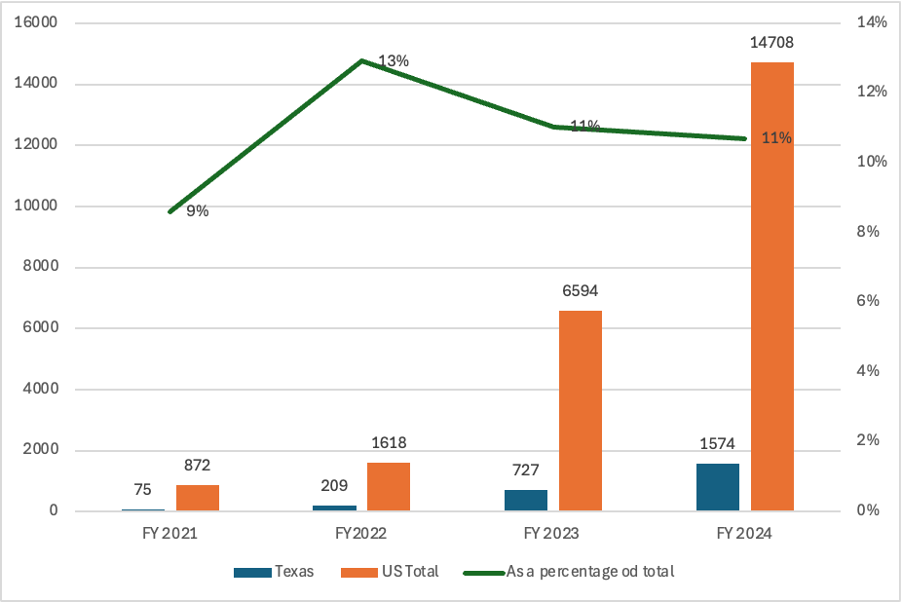



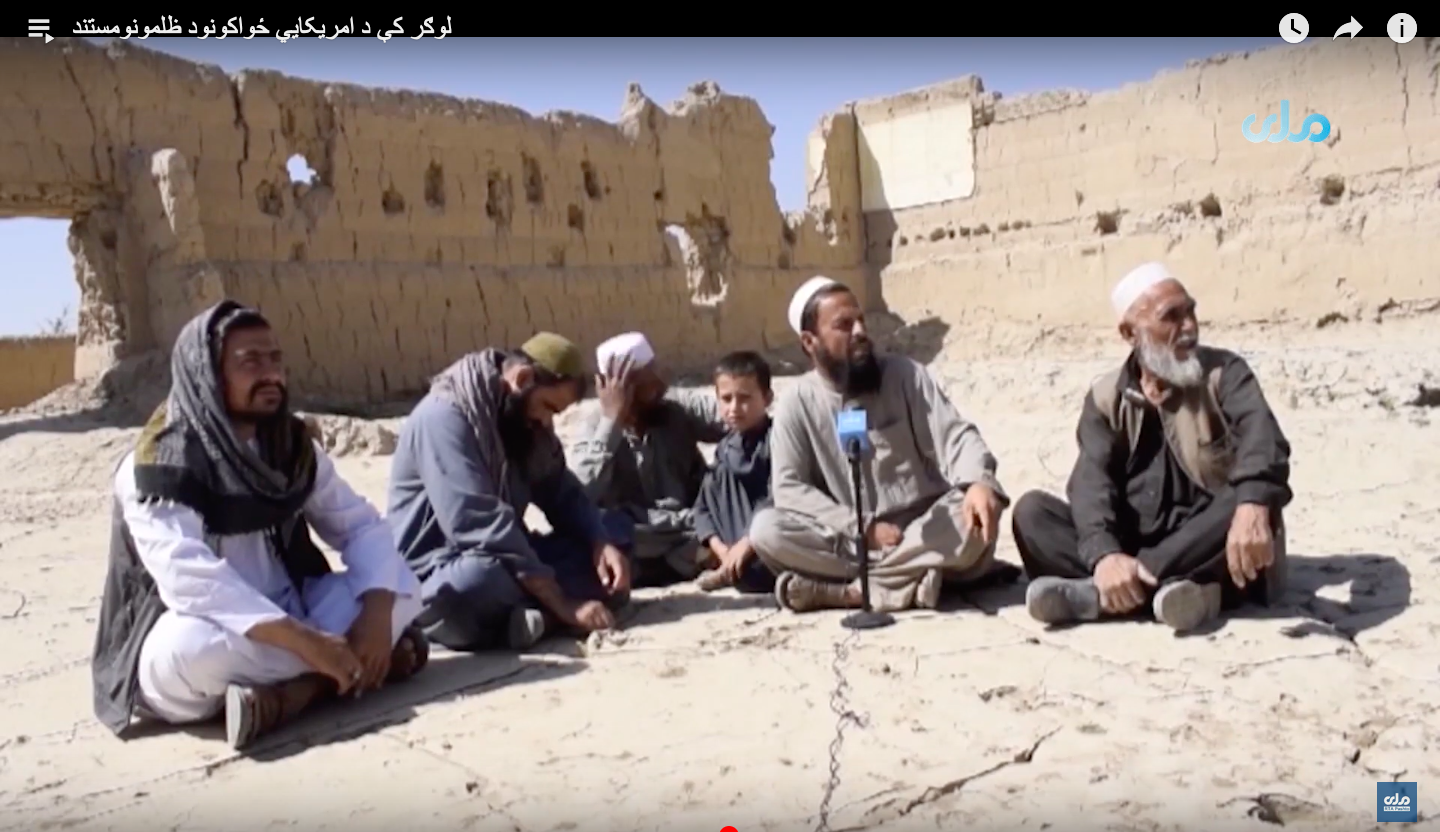 The villagers in Logar province speak to the state-run Radio Television Afghanistan about the US airstrikes in their area. A freeze frame from the “Documentary on American Atrocities in Logar Province”.The first part of this series is available here: “
The villagers in Logar province speak to the state-run Radio Television Afghanistan about the US airstrikes in their area. A freeze frame from the “Documentary on American Atrocities in Logar Province”.The first part of this series is available here: “






